11 Nov 2014
5 Facts About Veterans And Substance Abuse
Veterans Day is a time to remember and celebrate the people who have made sacrifices to serve in the military. If you have a veteran in your life, you know the toll that service can take. Mental health issues, including substance abuse, are common among men and women who have seen combat overseas. We should all recognize this struggle and be more aware of the issue. With awareness comes understanding, compassion and real change.
Facts About Veterans And Substance Abuse
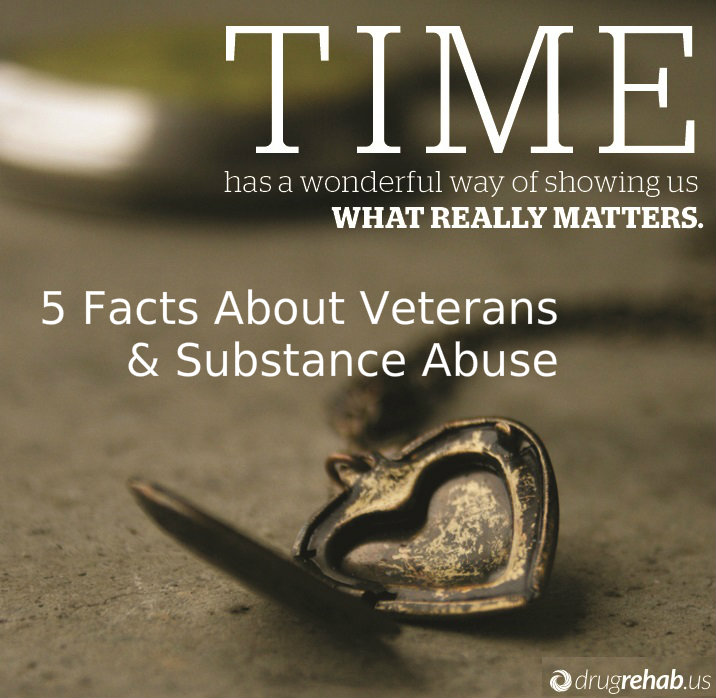 1. Prescription Abuse Among Vets On The Rise
1. Prescription Abuse Among Vets On The Rise
Use of illicit drugs by active military personnel is quite low. Compared to civilians, men and women in the military rarely use illegal drugs because of strict policies and enforcement by random drug testing.
On the other hand, prescription drug abuse is a real problem for both active duty military personnel and veterans. The rate of misuse of prescriptions increased from 2 percent in 2002 to 4 percent in 2005 and 11 percent in 2008.
2. Veterans Have A Drinking Problem
Alcohol may be legal, but it is a substance of abuse for many people and veterans are no exception. The Armed Forces Health Surveillance Center says that one in eight troops get streatment for alcohol abuse after returning from overseas deployment. While women are not immune from the problem of drinking, men are the ones who are really struggling. Twenty three percent of male veterans binge drink, compared to 14 percent of female veterans.
3. Substance Abuse And Veteran Suicides
For most of modern military history, suicide rates have been lower for troops and veterans than for civilians. Starting in 2004, though, the incidents of suicide in the military have been rising. In 2008, the rate of suicides in the military surpassed the rate among civilians. Substance abuse is often involved in cases of suicides. According to the Army Suicide Prevention Task Force, one-third of suicides included abuse of prescription drugs.
4. PTSD Is Linked to Substance Abuse
Post-traumatic stress disorder, or PTSD, is a common mental health issue for veterans. The experiences of combat haunt military personnel — some develop the flashbacks, panic attacks, nightmares and other symptoms that characterize PTSD. Many turn to drugs or alcohol as a form of self-medication. Nearly a quarter of veterans with PTSD will also develop a substance abuse problem, and one-third of those seeking treatment for substance abuse also have PTSD.
5. Treatment Is Available For Vets
If you are a veteran and you struggle with drug or alcohol use, or you care about a vet who is having a problem, know that help is available. The Department of Veterans Affairs offers several services for vets, including screening and diagnosis. This first step can even be done anonymously. The veteran can then decide to take steps to get treatment. Options for treatment are varied and include therapy, couples and family counseling, support groups, care for a dual diagnosis of mental illness and substance abuse, and medication. The VA offers residential treatment as well as outpatient care and continuing care.
Substance abuse is a common problem among veterans because of the experiences of active duty. Mental health care is crucial to these important people and they deserve to have the best treatment modern medicine can offer.
If you or someone you care about is struggling with drinking, drugs or mental illnesses like PTSD, contact the VA and find out how to get access to treatment. It could save the life of the vet you love.
When you are guiding a loved one through the process of getting help for alcohol abuse, it can be easy to feel overwhelmed. You want the best for the person you care about, but there are so many choices. How do you know which facility and which type of program is right and will be most effective? The first step is to understand what the options are. Then you can make an informed and personal decision about seeking care.
Alcohol Treatment Options – How To Choose The Right Alcohol Treatment Program
When it comes to care for alcoholism and alcohol abuse, there is no one-size-fits-all option. Addiction care is personal and most effective when it is individualized to meet the particular needs of each patient.
Your loved one needs the type of care that will work best for him. These are some of the options:
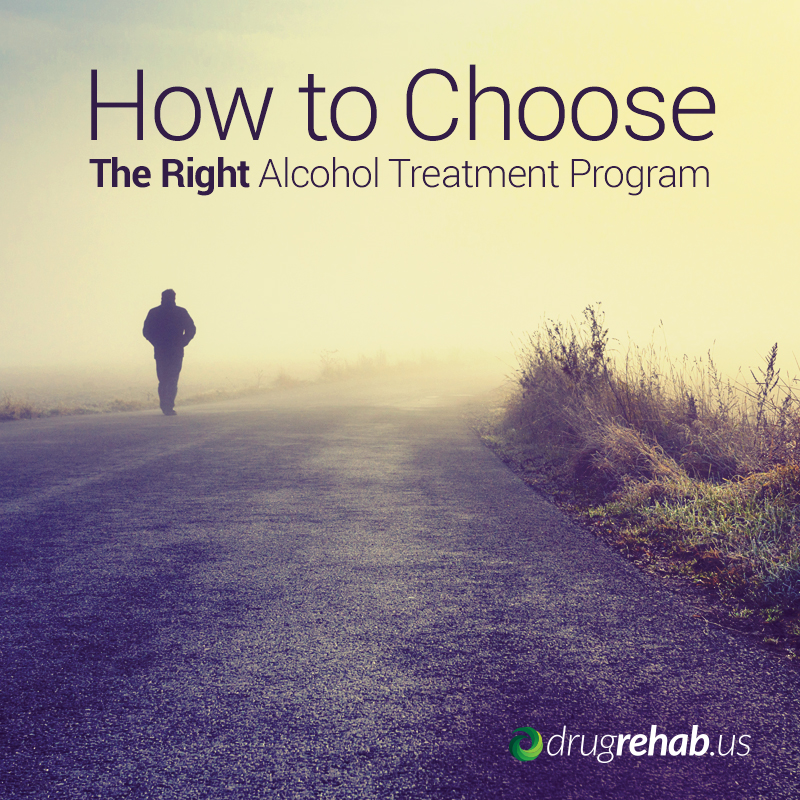 Outpatient counseling – Counseling is useful for anyone who abuses alcohol. On an outpatient basis, it allows the patient to stay at home and to continue going to work or school. This may not be the best option for someone who is a serious alcoholic. Counseling may include group therapy, family therapy or one-on-one counseling.
Outpatient counseling – Counseling is useful for anyone who abuses alcohol. On an outpatient basis, it allows the patient to stay at home and to continue going to work or school. This may not be the best option for someone who is a serious alcoholic. Counseling may include group therapy, family therapy or one-on-one counseling.
- Intensive outpatient program – An intensive program can allow the patient to stay at home, but still receive intense care. This requires a big time commitment, but is good for someone who needs extra support and feels most comfortable staying at home with family.
- Inpatient or residential care – Residential care means staying in a facility for a month or more. This allows the patient to receive intensive, daily care and 24-hour monitoring.
- Sober living – A sober living facility is similar to residential treatment, and may include intensive therapy and treatment. It is often used as a facility for someone who has completed residential care, but is worried about going home. It involves living in a house with other alcoholics in recovery and there are strong social and support components.
- Support group – A support group is a meeting of people trying to cut back on drinking or stay sober after going through treatment. Many are anonymous and follow a 12-step philosophy. These groups can be used as a stand-alone treatment or as ongoing treatment for alcoholics already in recovery.
Making The Right Treatment Choice
Now that you know more about the options for alcohol addiction and abuse treatment programs you can help your loved one make a good decision. Think about his needs and his personality and which type of program would suit him best. If he has a strong support system at home, maybe outpatient care would be best. If he can’t be trusted to not keep drinking, a residential facility might help. If he is not yet an alcoholic, but is engaging in dangerous drinking habits, individual therapy or attendance at a support group may be enough to help him make some important life changes.
As you pick out a facility together, make sure you keep a couple of other factors in mind. Look for a program that has good credentials and a well-trained and experienced staff. You should be able to get positive references from any reputable program. Also look for a facility or therapist that will tailor a program to meet the individual needs of your loved one. A rigid plan used for everyone is not going to be effective. If you keep these things in mind and are careful in your selection process, you should be able to find a treatment program that will help your loved one get sober and learn to stay alcohol-free.
Christian Or Secular Drug Rehab – Which Is Right For You? – Let Us Help You Make This Important Decision
04 Nov 2014
The Danger Of Addiction Stigma
Addiction is one of the most stigmatized diseases there is. Stigma refers to a sense of disgrace or shame attached to an action, behavior or situation. Many people still view addiction as a choice or evidence of weak moral character, and therefore as something shameful. Even as research and scientific evidence point to the medical characteristics of addiction and the chemical brain changes that occur in addicts, we still stigmatize addiction. If you or someone you know has battled addiction you know how overwhelming that stigma can be. It can also be dangerous and it needs to be shattered.
Stigma Prevents Addicts From Getting Help
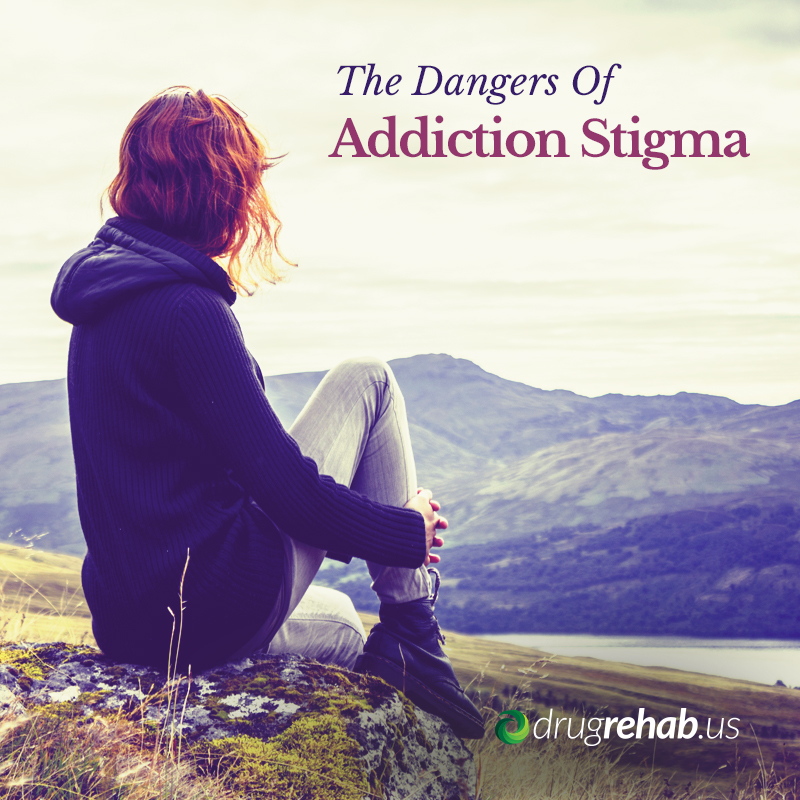 Perhaps one of the biggest dangers of stigma is that it keeps addicts from getting the professional help they so desperately need. When society at large views addiction as a moral failing rather than a medical illness, it makes sense that addicts would not want to admit to having a problem with substance abuse.
Perhaps one of the biggest dangers of stigma is that it keeps addicts from getting the professional help they so desperately need. When society at large views addiction as a moral failing rather than a medical illness, it makes sense that addicts would not want to admit to having a problem with substance abuse.
Why admit to something that would make everyone around you think less of you? It hurts to think of being treated that way, but it happens. And for this reason, many addicts deny their problem, hide their habit and refuse to get life-saving help, sometimes until it is too late.
Addiction Treatment Lags Behind Modern Medicine
Another danger of the stigma of addiction sits squarely in the world of medicine and the way in which the disease is treated. In spite of new research that shows the truth about addiction and which keeps growing in scope, treatment lags behind. We now know that addiction is a disease of the brain and should be treated as such. And yet, the majority of addicts in treatment are not getting care that is based on evidence and research. Just a small portion of addicts gets treatment that reflects what we know about addiction. Only when stigma shifts will treatment begin to change.
Addicts Are Going To Jail
The stigma of addiction is also entrenched in the justice system. Many addicts end up in jail for minor drug crimes, such as possession, when they really belong in treatment facilities. Most of the crimes committed by addicts are in the pursuit of drugs; in other words, their actions are a part of the disease. Sending an addict to jail for possession is almost akin to jailing someone with cavities for eating sugary foods or an obese person for having junk food. The latter two may sound ridiculous, but if we remove the stigma from addiction and view it as a disease, sending an addict to jail for having heroin would also sound outrageous.
Shattering Stigma
Stigma is dangerous. It prevents addicts from getting treatment, subjects addicts to sub-standard and ineffective treatment, and puts addicts in jail. If the incidence of addiction is to be reduced, we need to reduce stigma. If you or someone you know is an addict, it’s time to speak out and get help. We can work to end stigma by refusing to be quiet or complacent about addiction. Don’t deny the problem. Actively seek help and evidence-based treatment. Talk about your addiction and make sure people listen.
There is nothing shameful about having a disease and it’s time that everyone recognizes that fact. Stigma is killing addicts and that is the real shame when it comes to addiction. Change is coming, as evidenced by work of researchers and advocates for addicts, and it can’t come soon enough.
Time To Get Started And Take Action – Take That First Step To Addiction Recovery – Call Us Now!
15 Oct 2014
Should I Try Medications For Alcoholism?
There has long been a prevalent philosophy of addiction treatment that includes total abstinence. Of course it makes sense for an alcoholic to abstain totally from drinking, but some also say you should avoid drugs wherever you can, including medications. Ideas are changing, though, thanks to research.
We now know much more about addiction and its effect on the brain than ever before. Researchers have developed medications that may be able to help you recover more effectively and stay sober more easily. Not all agree that drugs are the way to go, so what should you do?
What To Do When Deciding Whether Or Not To Try Medications For Alcoholism:
Read Up On Drugs For Treating Alcoholism
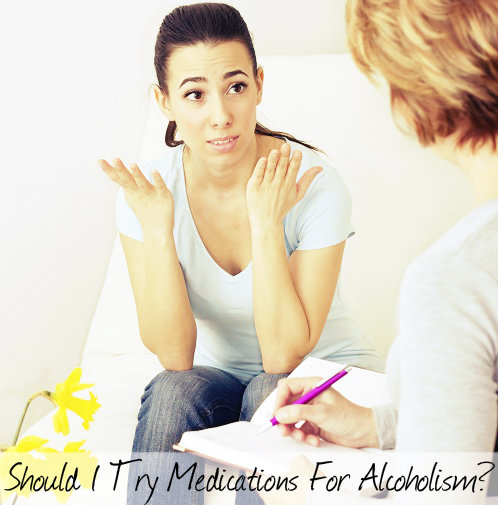 The first and best thing you can do when it comes to making a choice about medications is to read and learn. Knowledge is power, so read up on the drugs available to treat alcoholism and learn more about each one. Armed with the information, you can make a better choice and have a more intelligent discussion with your doctor and therapist.
The first and best thing you can do when it comes to making a choice about medications is to read and learn. Knowledge is power, so read up on the drugs available to treat alcoholism and learn more about each one. Armed with the information, you can make a better choice and have a more intelligent discussion with your doctor and therapist.
3 Common Alcoholism Treatment Drugs
Here is some introductory information to get you started learning about three of the most common drugs:
- Antabuse – The generic name for this drug is disulfram, and it has been around for decades helping alcoholics stop drinking. If you take the medication as directed and try to drink, you will get very sick. Symptoms are short-lived and include nausea, vomiting and headaches.
- Naltrexone – Naltrexone blocks the high, or pleasant feeling, that you normally get when drinking alcohol. If you take it as directed, you will have no reason to drink.
- Acamprosate – This is one of the newer drugs on the market for alcoholics and it works by helping you to resist the urge to relapse. You are only supposed to take this medication after you have given up drinking. It reduces some of the long-term withdrawal symptoms that would make you turn back to drinking.
Discuss Treatment Medications With Your Doctor And Therapist
You should always discuss your treatment plans with those experts you trust to your care. Of course your doctor will be the one to prescribe a medication, or your psychiatrist if you have one. Discuss the pros and cons with both your prescribing doctor and your therapist or drug counselor. These professionals can help you make an informed decision about whether alcoholism medications are right for you.
The most effective addiction treatment plan is one that is tailored to your specific needs. You, along with the professionals who know you and your history, are best qualified to develop a plan, whether or not it includes medications.
Never Rely Solely On Medication To Overcome Your Addiction
If you decide to give one or more of these medications a try, keep in mind that none of them is designed to be used alone. All are approved to treat alcoholism in conjunction with psychosocial therapy. This means that you need to use other treatment methods, including behavioral therapy, psychotherapy and support groups together with drugs for effectiveness. Drugs alone are not the answer because there is no simple cure for alcoholism or any other type of addiction.
The ultimate choice as to whether or not you try drugs to treat your addiction is up to you. In order to make the best choice for yourself and your future, make sure you are educated about the options, discuss with your medical and counseling professionals and make medications just one part of an overall treatment plan. If you follow these steps and make the commitment to stick to your plan, you stand every chance of a successful recovery.
See Other Drug And Alcohol Rehab FAQ’s
10 Oct 2014
Jail Is Not A Form Of Rehab
For decades, the war on drugs in the U.S. has taken a hardline strategy. Addicts are treated like criminals rather than people with a serious illness. As attitudes begin to shift and research tells us more about the disease of addiction, many hope that drug policies will also change. The tough love idea that prison can cure an addict is no longer working in the rehab vs. jail debate.
Punishment As Rehabilitation
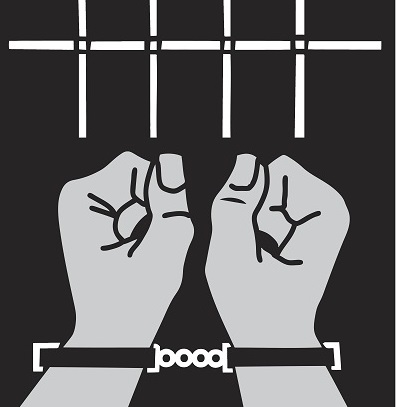 A dominant philosophy of treatment for drug addiction has been one of punishment. Society has long viewed addicts as people with moral failings and natural weaknesses. The idea has been that in order to correct their poor choices, tough love and punishment are needed.
A dominant philosophy of treatment for drug addiction has been one of punishment. Society has long viewed addicts as people with moral failings and natural weaknesses. The idea has been that in order to correct their poor choices, tough love and punishment are needed.
Although the general attitude toward addiction as a disease to be treated with medical techniques has been growing, many addicts end up in prison. For too many addicts, a stint in prison, or more than one, is the only type of rehab they receive.
Prison exists for several reasons. The main point of incarceration is to punish. It also exists to remove offenders from society. Finally, prison is supposed to rehabilitate inmates, even those that are not addicts. The time spent in jail is to be productive and to prepare inmates for re-entry into society as contributing members. Unfortunately, jails and prisons have largely failed at this last goal. How can they be expected to be facilities that will successfully treat drug addicts?
True Drug Rehabilitation
Drug rehabilitation statistics tell us that the punishment model simply doesn’t work, and neither does using jail as a form of drug rehab. Real rehab means using a combination of evidence-based techniques that are individualized for each patient. Trained professionals should lead the techniques. Therapy, counseling, group support and medications where appropriate are the tools of drug and alcohol addiction rehab. Evidence from modern research tells us that these are the methods that work, not punishment.
True drug rehab can take many different forms. The important thing is that it should conform to the needs of an individual. Rehab can mean spending weeks to months working intensively in a residential facility. It can also mean working in therapy groups while still living at home, or simply attending 12-Step support groups and using self-help techniques to stay sober.
The most important factors, as demonstrated by drug rehab success rates, are that rehab methods are based on evidence and that the overall program is individualized. When an addict receives this type of treatment from caring professionals, he stands a real chance of getting well again. Jail is no place for an addict. It simply doesn’t work as rehab and it only increases the odds of an addict getting in trouble with the law again.
17 Sep 2014
How To Get The Best Addiction Care
When you finally make that important choice to get help for your addiction you are ready to start healing. Does this mean you should run straight to the first rehab program you find and dive in without thinking or planning? You might be tempted to just get it over with and get started, but if you want to make the most of your experience, and get the best care possible, take some time to plan. With appropriate steps and a little research, you can make sure you are getting the best help possible.
What To Look For In Treatment Programs
 The first thing to consider when you need help for your addiction is getting all the information. You may get lucky if you go with the first program you hear about. But you are more likely to have a positive experience if you take the time to research your options and to select the program that makes the most sense for your needs.
The first thing to consider when you need help for your addiction is getting all the information. You may get lucky if you go with the first program you hear about. But you are more likely to have a positive experience if you take the time to research your options and to select the program that makes the most sense for your needs.
You also want to look for high-quality programs. Look for accreditation and licensing. Ask about treatment methods and whether those the program uses are backed by evidence. Finally, make sure any program you choose has an aftercare program. This is crucial to long-term success.
Covering the basics is important. Next you need to consider variations in programs and which type best suits you. There are residential programs, which are a good choice if you think you need to be monitored around the clock.
You may also choose an intensive outpatient program. This allows you to stay at home and may work for you if you have a strong support system living with you. Outpatient programs are also a good option if you need to keep going to work every day. You should be able to find a program that fits in around your work hours. Whichever type of program you choose, make sure that you will receive a treatment plan tailored to your specific needs.
Make The Most Of Your Rehab Experience
Once you have entered your rehab facility or outpatient program, the real work begins. You now have an important opportunity to work toward sobriety that can last for the rest of your life. To get the best care, make the most of your experience. This means starting with a positive attitude. This is a difficult period of your life, but your attitude can make all the difference. While maintaining a positive attitude is important, you should also make sure your expectations are realistic and your goals attainable. Don’t go into treatment thinking you will come out cured. That is not the point of rehab.
Being in rehab can be a big adjustment. You will have rules and boundaries and make sure you follow them. They are in place for your safety and that of your peers. Follow the rules with a good attitude. As you go through counseling and group support, remember to remain open. Be open to the experience and to hearing what others have to say. If you remain closed off because of embarrassment or shame, you will not get the most out of your sessions.
Finally, cultivate persistence. Making it through rehab or outpatient care requires strength and patience. Getting sober and staying sober aren’t easy tasks. You will face challenges every day for the rest of your life. Never give up, even if you sometimes slide backwards. Persist in the face of your addiction and find the strength to keep going while in rehab and when you have made it to the other side.
Choose The Right Rehab For Yourself Or A Loved One
01 Sep 2014
What Kind Of Addiction Therapy Do You Need?
Addiction is a complex disease that starts in the brain and affects the entire body. It includes components of mental and physical health and requires an individualized treatment plan that addresses all the patient’s needs. A complete program of treatment for addiction should include some type of therapy or counseling, but with so many options available, it can be confusing. Learn about therapy and what it means for addiction to be sure you are getting the kind of treatment you need in order to heal.
Addiction Therapy Types
Individualized Treatment For Addiction
The first and most important thing to realize when getting treatment for your addiction is that the most effective plans are individualized. Addiction is both complex and personal. Everyone is different and responds differently to treatment approaches. Make sure that the therapist, counselor or rehab facility you work with will take this into account and has a philosophy of individualizing care.
Outpatient vs. Residential Therapy
 Receiving therapy on an outpatient basis means that you can stay at home and visit your treatment center at convenient times. This option works well for people who need to continue going to work and who have a strong support network at home. If your addiction is severe and you have no one to support you in your sobriety, you might want to consider getting therapy in a residential setting. This means staying overnight for a period of a week or up to several months in a facility dedicated to addiction treatment. Both types of care will allow you to get the therapy you need, but one may be better suited to your needs than the other.
Receiving therapy on an outpatient basis means that you can stay at home and visit your treatment center at convenient times. This option works well for people who need to continue going to work and who have a strong support network at home. If your addiction is severe and you have no one to support you in your sobriety, you might want to consider getting therapy in a residential setting. This means staying overnight for a period of a week or up to several months in a facility dedicated to addiction treatment. Both types of care will allow you to get the therapy you need, but one may be better suited to your needs than the other.
Cognitive-Behavioral Therapy
The type of therapy that you are most likely to encounter while being treated for addiction is called cognitive-behavioral therapy, or CBT. A therapist practicing CBT will help you to learn what prompts your drug use or drinking. CBT helps you to recognize these motivations and teaches you how to change your substance abuse behaviors. CBT is sometimes also combined with a type of therapy called mindfulness. This means learning how to be more aware of your mood, your physical symptoms and external factors so that you can recognize triggers and avoid relapsing and using drugs or alcohol after a period of sobriety.
Group Therapy And Support
Another important component of treatment for addiction is social therapy. When you can work with other addicts, people who understand what you are going through, your treatment becomes more powerful. Group therapy sessions are common in residential rehab facilities, but you can find groups to attend on an outpatient basis. The experience of sharing your struggles in a safe environment, and learning from others, is powerful and can advance your healing. The support of these other people can lead to lifelong relationships that help you to stay sober.
Family Therapy
Addiction often starts at home; working with your family as you go through therapy can be helpful. If members of your family are willing, a therapist will work with you as a group and consider the family as a system with its own special dynamics. Being able to open up with your family and getting to the root of some of your issues is not always comfortable, but it can go a long way toward helping you get and stay sober.
Therapy is an essential component of addiction treatment and one that you should consider carefully. If you have no idea where to start, let your physician refer you to a good therapist. From there you can plan your course of treatment, decide whether you need a residential facility and begin to work toward your goal of recovery.
Ready To Begin Addiction Therapy? Call Us Now To Learn More
Buprenorphine is a drug that can be used to treat opioid addiction. It comes in two formulations called Subutex and Suboxone. Although these medications are designed and prescribed to help people overcome addiction, some people abuse them to get high. If you love someone battling opioid addiction, pay close attention and make sure he is not abusing the medication that is supposed to be helping him heal.
What Is Buprenorphine?
Buprenorphine is a synthetic opioid drug that blocks withdrawal symptoms. When the addict takes it, he can stop using heroin or painkillers without experiencing the withdrawal that leads many addicts back to substance abuse. Subutex contains buprenorphine alone and is supposed to be used first and for a short period of time. Suboxone includes a second drug, naloxone, which is intended to prevent abuse. It blocks the high that buprenorphine can impart to the user and is designed to be used after Subutex.
Can Someone Abuse Buprenorphine?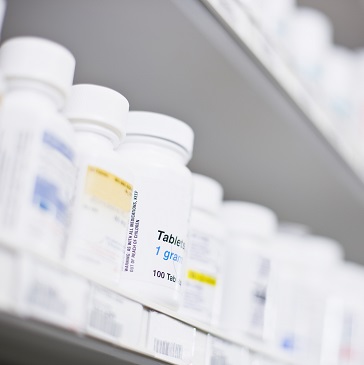
Buprenorphine was the first medication that the Food and Drug Administration allowed to be dispensed from doctors’ offices thanks to its successes in treating opioid addicts. Not all stories of buprenorphine use have been good, though. Some people have abused the medications, and although it is supposed to be impossible to overdose on, there have been deaths associated with Suboxone and Subutex abuse.
It is more difficult to get a high from buprenorphine, and also more difficult to overdose, than other opioids. It is possible, though, and some abusers are desperate enough to use this medication like an illegal drug. Dealers are making a killing selling black market buprenorphine, both to people wanting to abuse it and those wanting to use it as a treatment.
How Can I Tell Someone Is Abusing Buprenorphine?
It is important that you are vigilant with your loved one who has been prescribed buprenorphine. Not everyone realizes that there are risks associated with abusing it. Many are told that you can’t overdose on it, but this isn’t true. Make sure your loved one understands this risk and watch out for signs that he has started abusing his medication.
If you have lived with a drug addict you already know what many of the signs of abuse are. Maybe he has started:
- sleeping more
- missing days of work
- borrowing or stealing money
- having mood swings that seem inexplicable
Watch out for all the usual signs of drug abuse that you have seen before. If he starts acting like he used to when he was using, you should be concerned.
There are also specific symptoms associated with abusing buprenorphine medications. Side effects of the drugs that are possible include:
- flu-like symptoms
- sweating
- headaches
- mood swings
- nausea
- difficulty sleeping
Watch for indications that any of these are getting worse. If he is using more of the medication than directed, the side effects could be intensified. Other signs may include:
- hair loss
- emotional instability
- apathy
- a loss of interest in sex
- watery eyes
- muscle pains and cramping
- impaired memory
- depression or anxiety
Buprenorphine can be a powerful aid in helping opioid addicts get clean and stay clean, but there are risks that are often overlooked. As someone who loves an opioid addict, you should encourage him to use all the tools at hand to beat his addiction, including buprenorphine. But you should also be careful and look for signs that he has turned to his prescription medication for a high. If he has, confront him with love, understanding and patience, and help him to get back on the road to recovery.
If You Or Someone You Love Is Struggling With Addiction – Call Us Now – We Are Here For You 24/7


